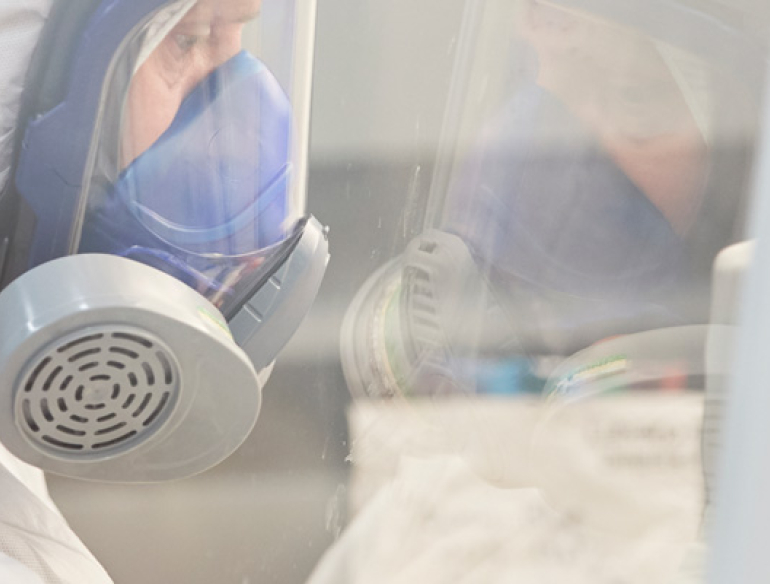The COVID-19 pandemic requires an urgent response including a strong focus on effective immunotherapies, which boost the body’s immune response to the virus. The body’s immune response to infection is to produce antibodies, which fight the infection. Our researchers are looking for ways to harness the antibodies produced by recovered COVID-19 patients, to develop treatments for patients with progressive COVID-19 infection.
We have identified antiviral immunotherapy which uses ‘neutralising antibodies’ which defend the body’s cells against SARS-CoV-2 infection, as a pathway likely to enable the rapid development of safe therapies from the laboratory to registered products. With our colleagues at the Garvan Institute, one approach we are pursuing is to develop engineered neutralising antibodies, called ‘monoclonal antibodies’, in the lab and to test them in the clinic.
With Professor Daniel Christ at the Garvan Institute, monoclonal antibodies that successfully neutralise the SARS virus will be specifically modified to be effective against COVID-19. This will be done by generating mutant versions of the original monoclonal antibodies until we have a humanised candidate that binds strongly to SARS-CoV-2 and prevents it infecting cells and causing disease. Once we have a successful antibody, we will run a human clinical trial in patients infected with SARS-CoV-2 in order to obtain the optimal dose, to show that is safe and demonstrate its effectiveness in patients with progressive COVID-19 disease.
Our results reveal that a well-designed cloth mask can outperform a three-layered surgical mask for such violent respiratory events. Our developed graphene and nanoparticles coated cotton/silk fabrics showed excellent antimicrobial and multifunctional activities.
We will be able to prioritise promising compounds from our pre-clinical and early phase work into the disease stage and population where benefit is most likely. Parallel adaptive trial platforms now in development by INSIGHT (early disease, CHIRON) or already accruing (moderate-severe disease, ACT) will ensure rapid large-scale evaluation of these approaches with controlled comparisons to best standard of care using robust clinical outcome measures.
The project is supported by the Kirby Institute and the Garvan Institute, UNSW.

